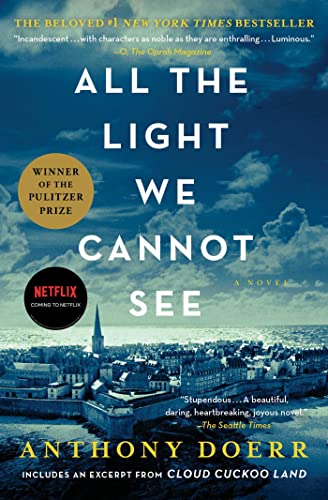Senior reporter Matt Kilmer discusses war and novels

Photo Credit: Amazon
It is safe to say that people have been ignoring the wars being waged in the Middle East over the past two decades, even though countless civilian lives and homes are being destroyed each day. In some ways, it is difficult to blame them. As the saying goes, ignorance is bliss. Even now, with Russia’s invasion of Ukraine, many continue to act like it isn’t happening, and that the people in Ukraine and the Middle East are not real people.
Perhaps, since we have not had those experiences here in the United States, people lack the ability to empathize through relatability. If we are not able to act, it is imperative that we do the bare minimum. We cannot ignore, we cannot forget, and we cannot be silent.
As holocaust survivor and Nobel Peace Prize winner Elie Wiesel once said, “if we forget, we are guilty, we are accomplices…neutrality helps the oppressor, never the victim. Silence encourages the tormentor, never the tormented.”
Fortunately for me, it has been through the books I have read in my English class this year that I have come to realize the importance of listening to and sharing the stories of the people that have been persevering through the mass destruction of their countries, regardless of whether or not others are watching.
Through World War Two period pieces I have read such as All the Light we Cannot See and Beneath a Scarlet Sky, I have been able to see through the eyes of the civilians and the hardships that they have endured.
Whether it is an Italian boy forced to join the German army by his parents or a blind French girl fighting back while being relentlessly pursued by a Nazi general, these books show that every victim of war has a story to tell, and that they are all worth listening to.
The real stories that people have to tell now are just as significant and need to be observed in the same regard.
Serhiy Perebyinis, a Ukrainian computer programmer, husband, and father of two, was in Eastern Ukraine tending to his ill mother when the bombing of Kyiv began.
Tragically, not long after fleeing their home to avoid the shelling, Mrs. Perebyinis and her two children were killed by a Russian shelling while trying to cross a bridge in Irpin, Ukraine. Mr. Perebyinis would discover this is the worst of ways: the internet.
“We used to see each other with my wife on Google Maps, and that morning I noticed that there was an unusual geolocation between Kyiv and their ping and then, 20 minutes later, her phone moved to another location, to a hospital in Kyiv,” Perebyinis said in an interview with CNN’s Erin Burnett.
Regrettably, his suspicions were confirmed in the worst of ways. He had found reports on Twitter of a family dying, and decided to look further into the news.
“And then I saw a photo on Twitter and I recognized my children. I recognized their things and their clothes.”
In an instant, this man’s life was changed forever. He lost his wife. He lost his son. He lost his daughter.
Sadly, these stories are pervasive during war. It seems like just around the corner, there is another life lost, another gut wrenching story.
Something people need to understand is that life in the Middle East is just as bad as it is in Ukraine. Many know the story of Malala Yousefzai, an Afghan woman who advocated for a women’s right to education and ended up being shot by the Taliban as a consequence. There are many, however, whose stories of sacrifice and tragedy fly under the radar. Unfortunately, that is an aspect of war. Often it is the innocent who are forgotten.
It is the job of the people who are privileged enough not to be involved in such catastrophes to stay informed. It is our job to listen. It is our job to empathize and spread words of these people’s struggles, because the truth of the matter is, they are just people, like me and you.

I am currently a junior at NHS. I am taking Journalism to strengthen my analytical writing and to stay up to date on the news.












